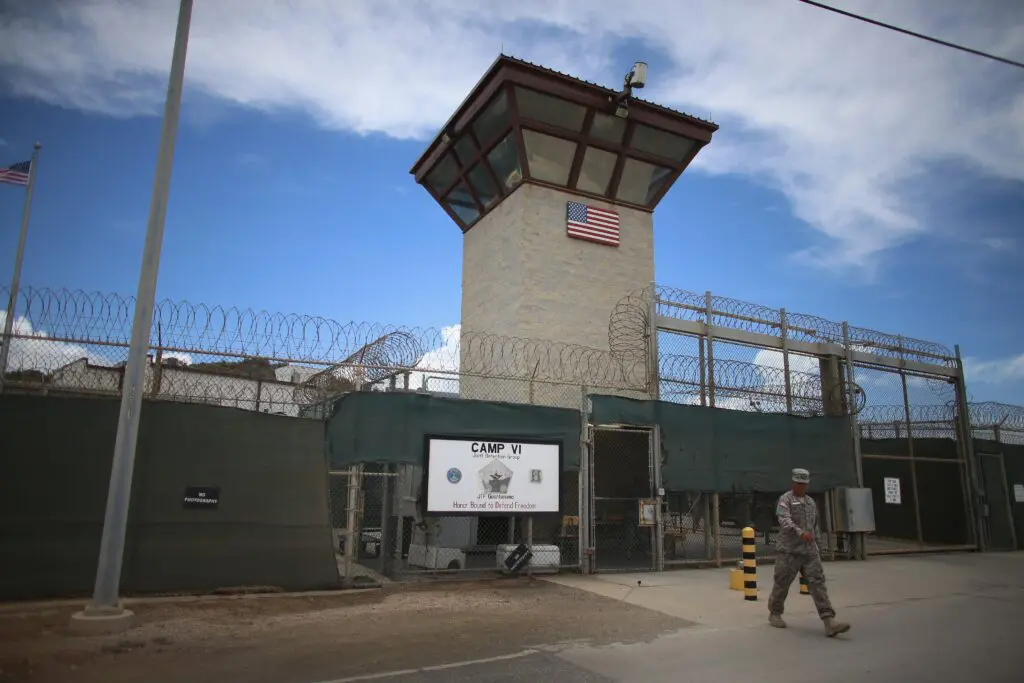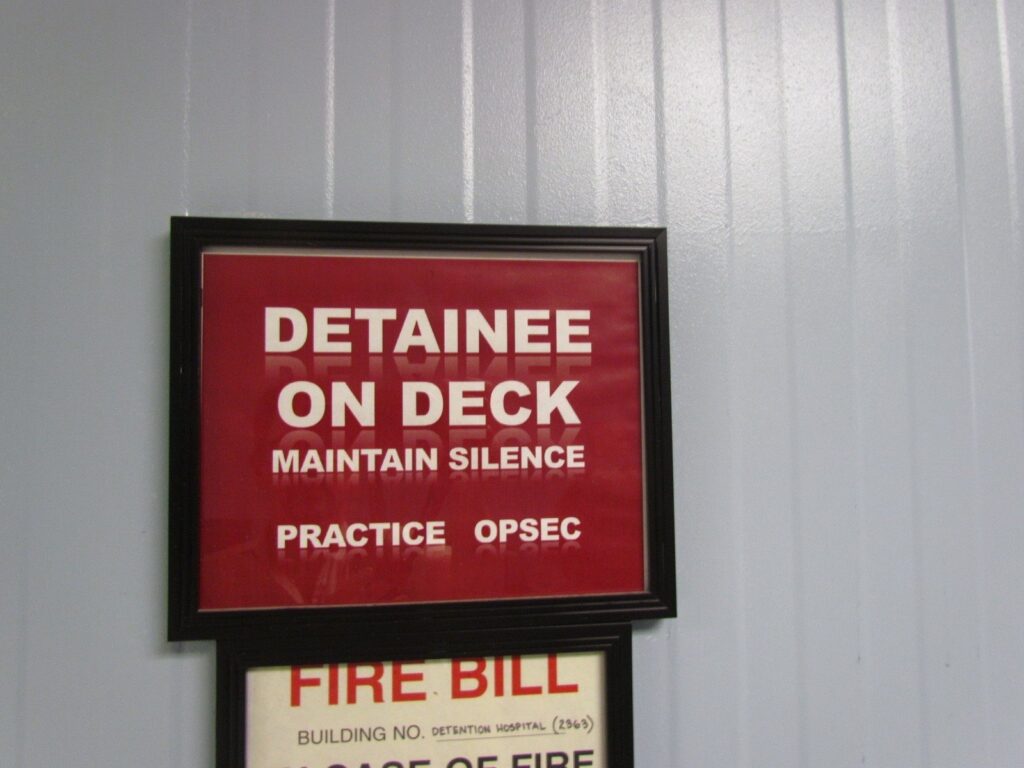An Order for My Backpack and Three Stages of Nowhere

“An Order for My Backpack” and “Three Stages of Nowhere” are part of the collection Poets Resist, Refuse, and Find a Way Through. Read the introduction to the collection here.
An Order for My Backpack
—For the Public Relations Officer at Guantánamo Bay, Cuba; July 9, 2016
This is my watch,
this is my phone,
this is my application for this visit,
approved & blameless in a clear folder.
My keys,
my U.S. passport,
my press pass,
& water bottle, emptied.
My ticket home,
my wallet,
my emergency contact information
in pencil on a napkin.
And this is a reminder—the list of words
I’ve promised
not to utter
restricted to a yellow Post-it:
hunger strikes
forced feeding
detainee deaths
migrant operations
closure
And this, my camera—
its trust diminished
since I’ve agreed to delete
any photo that captures
locks, gates
thresholds
reinforced doors
the name tags of soldiers
detainee faces
detainee bodies
detainee feet
anything that might be recognized by one of their mothers
& the sea before the horizon.
And this is Falkoff’s book of poems—
the flowers pressed between its pages
absorb then repeat
lines prisoners composed in cages.
And this you can tell
is a simple tube of cream.
It is for the stinging hives, troubled
witnesses on my thighs & shoulders.
Hives I read closely and cannot appease
steal my sleep a few days at a time.
They testify outside the orbit
of soldiers in watchtowers.
And this is my notebook
filled with lines not prepared to die.
For words, for hives-turned-welts,
they move closer to the spine.
Author’s note: “An Order for My Backpack” was inspired by Günter Eich’s poem “Inventory.”
Three Stages of Nowhere
Stage one: Four men force prisoner 435 into a 3 ft. by 4 ft.
plywood box they built the day before. It takes half an hour.
Stage two: There is only one man. It takes three days of nonstop
pop and hard rock with a high pressure hose to achieve the same.
Stage three begins after two days of rest, on day seven.
The team is in white lab coats and rubber Halloween masks.
They enter the cell telling jokes from TV shows or recounting
the best of last night’s game. They smell like McDonald’s breakfast.
They chat about how long it will take.
There is no touching.
Prisoner 435 sits waiting or praying, naked except
for the rubber dog collar. Nylon rope tied to it braids the silence.
They stare. His chest heaves. A digital clock is foggy on the wall.
Their mechanical pencils without erasers scratch at yellow legal pads.
About three weeks in, the tallest walks in as Freddy Krueger.
Upon arrival he raises an index finger above his masked head—
freezes in the cold as if to catch the direction of the wind.
Prisoner 435 is not in the middle of the concrete floor.
His ear is not pressed against the drain’s chrome cover.
His hands are not folded in prayer. He is over there—
near the wall hooks, under them.
The rope is no longer visible. The silence remains.
The tallest shouts: Yes-Yes. Oh, God-Yes!
435 is in the box.
Has one arm out.
Has the shakes. The lid will not fit
tight above him. Is going nowhere.
He is curling up to fit inside.


























